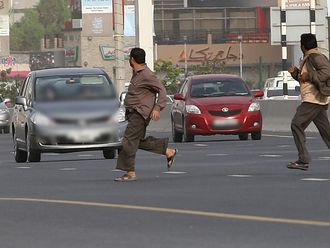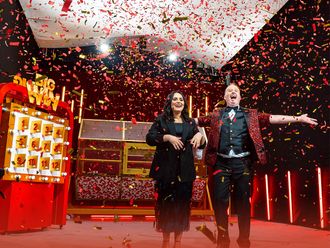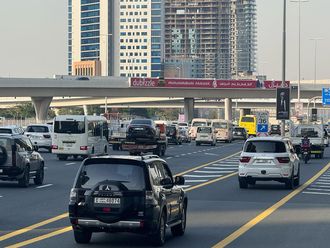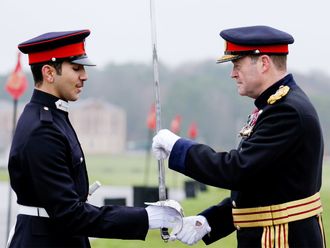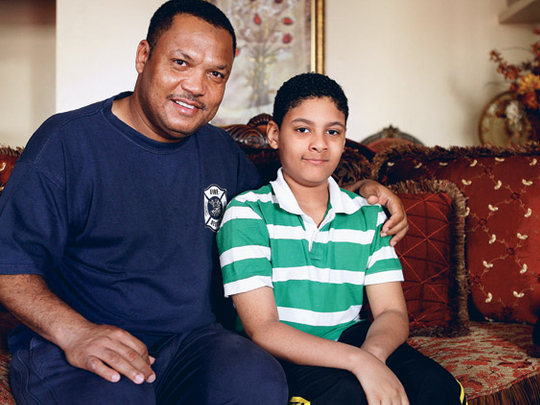
Eid in Emirati families is a celebration of tradition — big family get-togethers, some Arabic coffee, traditional food and gifts. A lot of gifts, indeed.
UAE national Saif Al Meskiri, who lives in Karama, Dubai, starts his celebrations by making sure he spends the first day of Eid with his mother.
"All of us — my brothers, sisters, and cousins — we all go and visit my mother. Some of my relatives drive down from Oman to her villa in Abu Dhabi."
The get-together involves exchanging gifts.
"All the families contribute. My children will be given money from all the cousins, so we give money to other children, too."
And with the gifts come some tasty traditional delicacies.
A typical spread in Emirati families has preparations like harees (meat and barley broth) and thareed (bread soaked in curry), along with traditional sweets like lugaimat (soft dumplings in date honey), balaleet (sweet vermicelli) and khmeer (bread with honey).
But while Eid today brings Al Meskiri closer to his family, he still misses his childhood days, when his family would drive into the country to meet families.
"[Eid] isn't as much fun now. Before it was more about meeting people, there was more emphasis on social life, more conformity to our society. Now it is more modern, families have become smaller," he said.
Talking about the atmosphere then, he said: "You met people who were very, very sweet. Each one of them wore the traditional dress and we used to make a dish where the meat was cooked underground for two or three days. When the meat is ready it is served with rice and is very delicious. Some of these activities are missing today."
Special dishes
- Harees — A meat and barley broth cooked for several hours.
- Thareed — Bread soaked in saloona or a meat curry.
- Khmeer — Special bread with honey.
- Balaleet — Sweet vermicelli, usually eaten with eggs.
- Lugaimat — Soft dumplings soaked in date honey or syrup.
- Khabeesa — Paste of dates with some spices for flavour.






